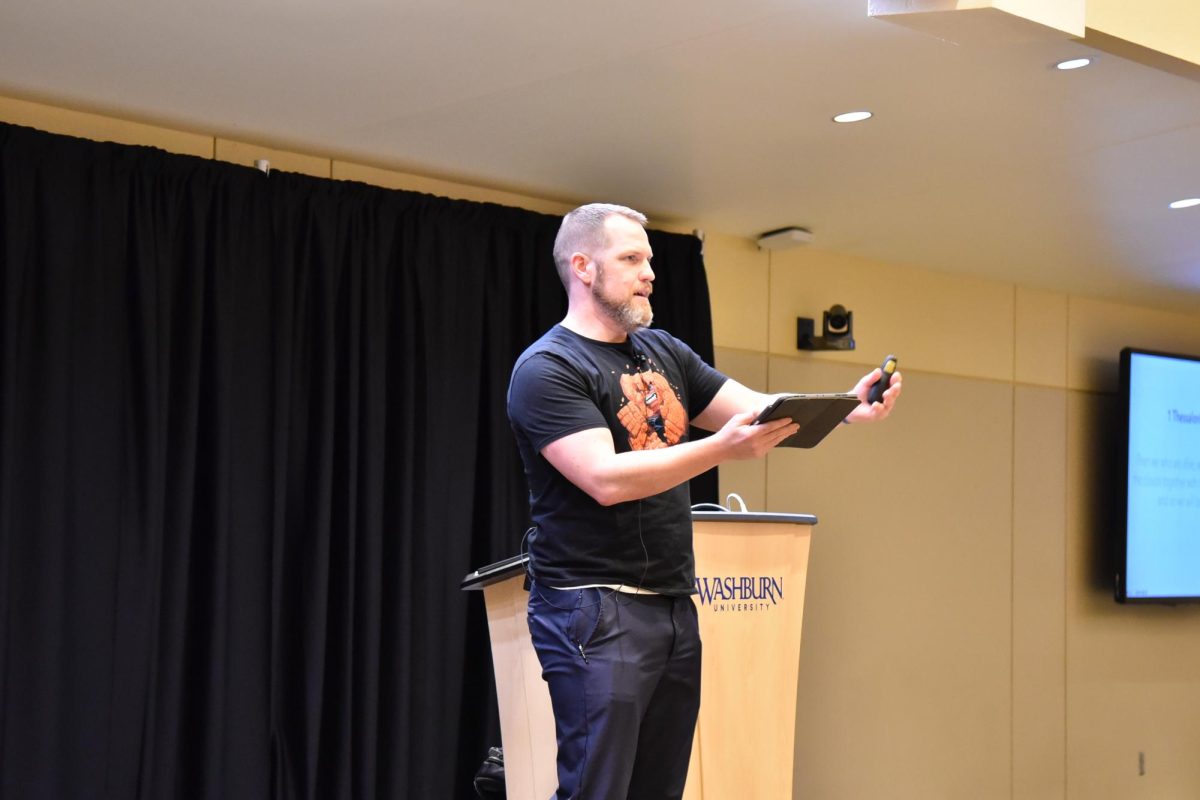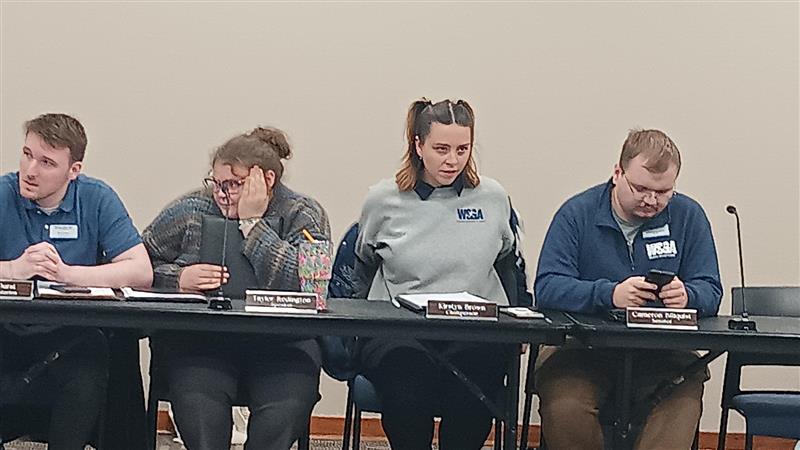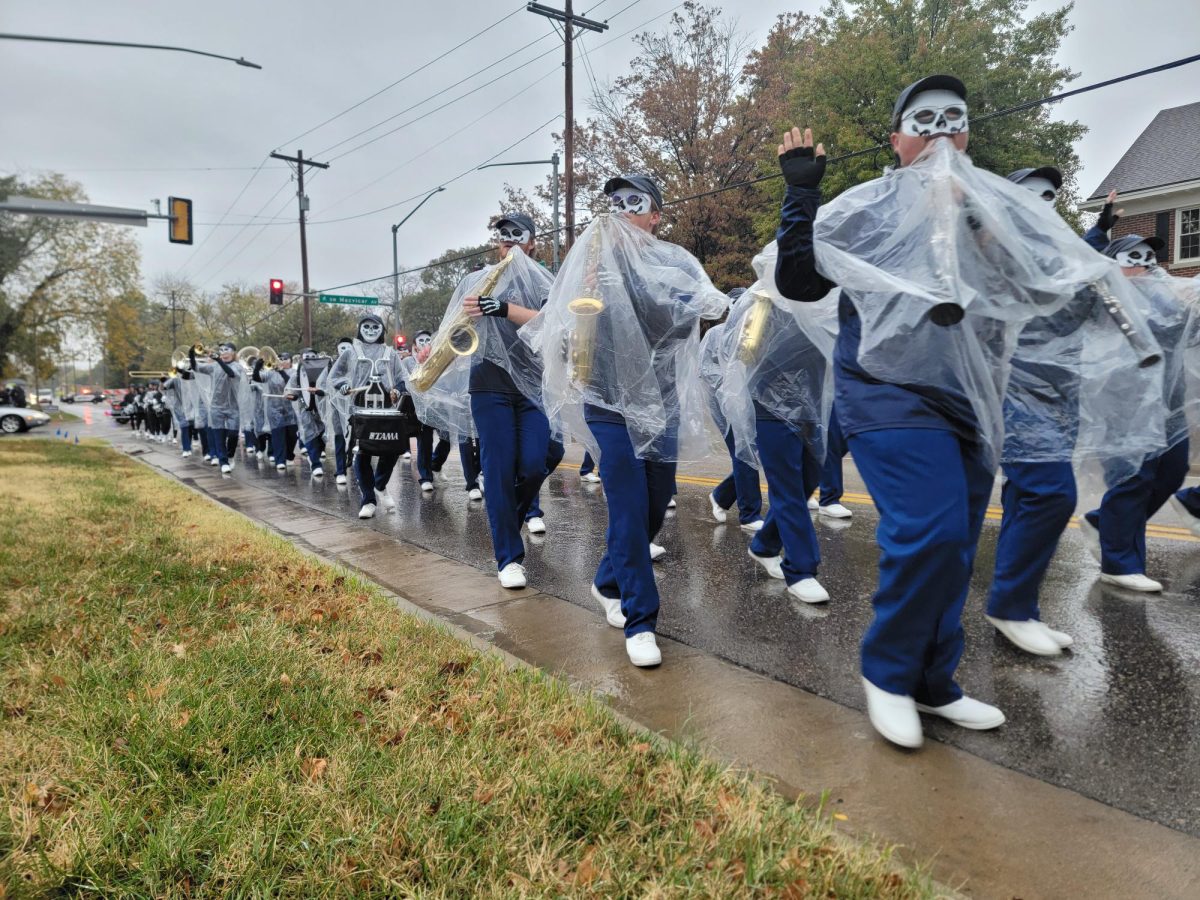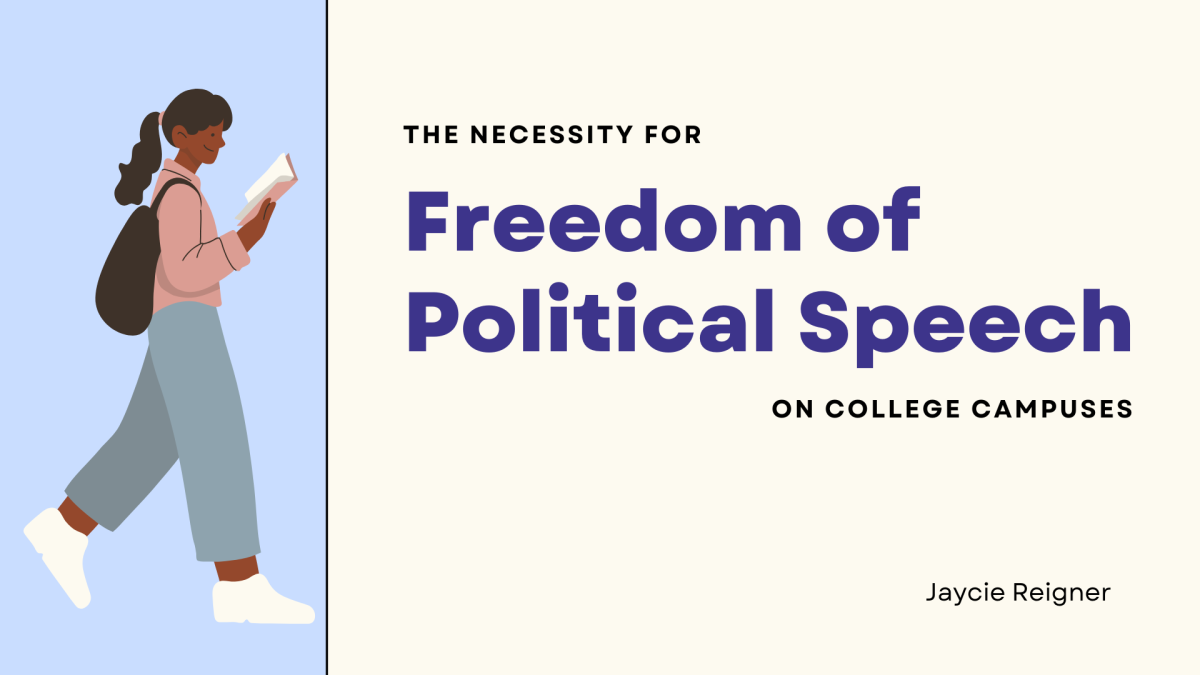Washburn invited Dan McClellan, public scholar of the Bible and religion, to speak at this year’s Thomas King Lecture March 5, at 7 p.m. at Washburn University. There were over 140 attendees.
McClellan has a Ph.D from the University of Exeter and is an independent scholar of the Hebrew Bible. He is known for his work on social media platforms with over 707,000 followers on TikTok. He mentioned his works to increase public access to the academic study of the Bible and religion and combat the spread of misinformation.
“I have been very consistent about videos; I try to publish at least two a day,” McClellan said. “I share stuff also on Instagram, on Twitter [X], on Youtube and then I will go live so people can interact with me.”
Before the lecture, McClellan planned on using examples from the Bible, but his primary goal was to talk about some of the insights from the cognitive sciences about how we read important texts and how they influence interpretation.
“I am going to use some examples from the Bible to show that we are not drawing meaning out of the Bible, but we are creating meaning with the Bible,” McClellan said. “If we have [a] specific agenda when we approach the Bible, that agenda is going to influence how we create that meaning and is one of the reasons that I think the Bible can be used as a tool for harm.”
John Fritch, Washburn’s new provost, started the lecture by introducing the history of Thomas King Lecture. Due to generous support, the lecture series continues to be free and open to the general public. He mentioned the importance of the lecture in today’s time.
“Although the lecture series has been in existence for more than 40 years, it may now be needed more than ever,” Fritch said. “Events such as this lecture seek to restore a sense of public disclosure embedded in our community.”
Chris Jones, associate professor of religious studies, introduced McClellan. He mentioned his appreciation of McClellan in the lecture.
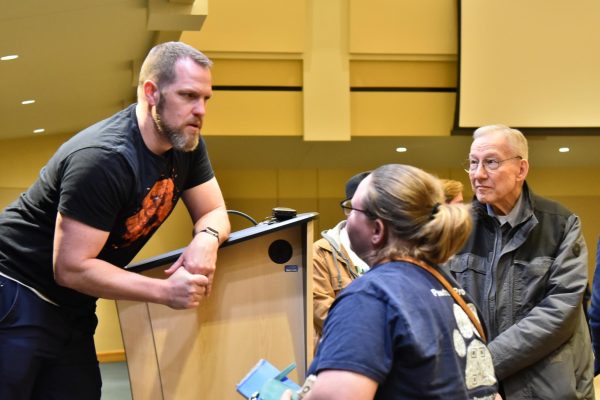
“One of the things that I appreciate too much about Dr. McClellan’s tone and tenor is that it is always so constructed,” Jones said. “The purpose is to help people better understand how to think about the Bible in online spaces and how to evaluate the claims that people make about it.”
Torey Lightcap, dean of Grace Cathedral, came to the lecture at the invitation of the philosophy and religious studies department to meet the speaker. He expressed his thoughts on the lecture.
“I have been to this lecture before, and I like to come to them annually,” Lightcap said. “I did [enjoy the lecture]. I found it affirming really in a lot of great ways.”
After the lecture, McClellan welcomed the audience in an open discussion where the audience asked questions. Ian Smith, professor and chair of the philosophy and religious studies department, helped the audience by passing out microphones around. He expressed his excitement at the success of the lecture.
“I have been here 10 years and the last time we had a crowd like this was back … [was,]I want to say, 2014 or 2015 when we had Robert Wuthnow give a talk on ‘Red State Religion.’ So this is very exciting,” Smith said.
After the lecture, there was a dessert reception sponsored by the Interfaith of Topeka. Many of the listeners stuck around to talk with McClellan. There was a sale of McClellan’s book, “YHWH’s Divine Images: A Cognitive Approach,” which was $45 on paperback.
Edited by Jeremy Ford and Aja Carter




